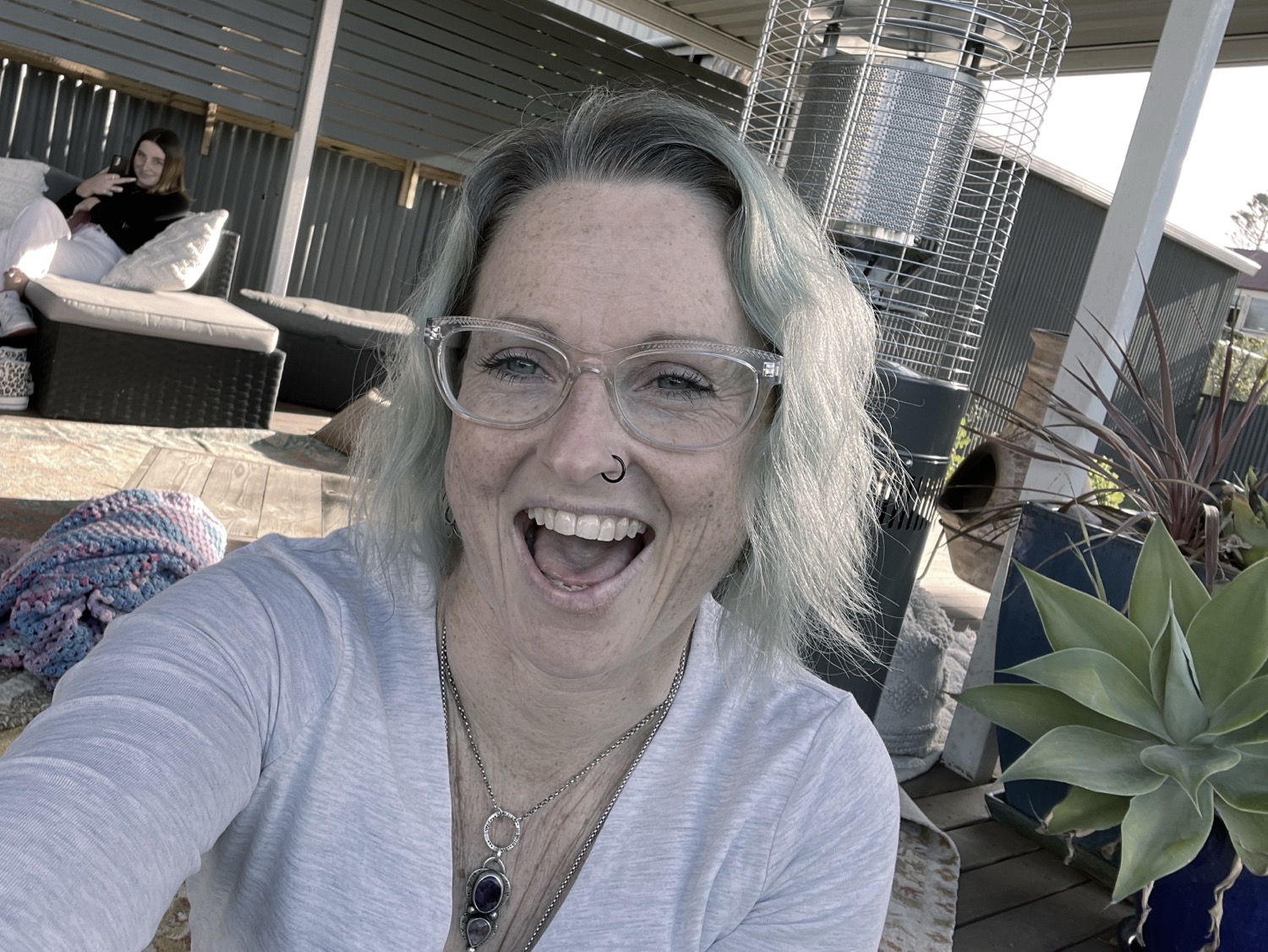Let's Talk Play/Playfulness
- alisonintheuniverse

- May 16, 2022
- 3 min read

I have just discovered an amazing thing! Play is good for our mental health & wellbeing, even our cognitive ability & executive functioning. Can you believe it? Do you know what this means? We can play to our hearts content & never feel like it’s a waste of our time.
Tell me when the last time you played was? Yes seriously……..
Dr Stuart Brown is a pioneer researcher in play (sounds like a fun job huh?), He asks us to think back to the most prominent memory you have of play as a child, describe it, the feeling both the physical kind and the emotional kind, really remember…
I was walking my dogs a few days ago with my partner and we happened to walk through a reserve with a creek that we used to play in as kids. We would build damns in the creek, hunt for golf balls lobbed over from the golf club nearby, balance on the water pipe that crossed high above the creek from one side to the other. We would spend hours here, days in the school holidays. Telling him about this reminded me of how it felt, to be adventuring with my mates, to be out of the house & parents not knowing where we were (well they did but it still felt so grown up), getting dirty, telling secrets & sharing this experience with the kids in the neighbourhood. Talking about it made me feel the joy, reminded me of the sense of awe & wonder we had as kids & how much of this we took for granted.
Society has begun to perceive these experiences as less important than academic ones, even for children but most definitely for adults. Outside of when you get to play with small children & babies play isn’t really revered as a well-respected pass time.
Lets ask ourselves why we play with small children? We know it is good for their development, we are taught this as new parents, as aunties or professionals in the field. Nursery rhymes & activities are passed on between generations & all manner of early childhood intervention spouts all kinds of academic support for good quality play time. What if I told you it is also just as relevant & important for adults?
There are many different types of play, the main thing is that it is not outcome based, that you aren’t striving to achieve something by participating in play (sorry marathon runners your training & food prep does not count).
Lets consider some different types of play & how they are beneficial:
Body play-get out of our gravity
Object play-human hand manipulation
Social play-with others
Curiosity & exploration
Rough & tumble play
Spectator/ritual play
Imaginative play
Play increases cognitive function, coordination, executive function, contextual memory, creative problem solving important for survival, trust is learned through play, relationships are formed, can be tested and practiced through play, body awareness, self-regulation & balance are increased & neuroplasticity are some examples of why we need play, play has a biological place in human evolution in the same way sleep & dreams have.
Now back to your memory of when you last played & how it made you feel- how can you introduce this emotion or feeling more frequently or perhaps even prioritise it in your life? How might you create play & benefit from all the great things play has to offer?
Some Ideas:
Pets! Who has pets? Throw a ball, play tug of war be with them in the moment.
Cooking – make something you have never made before & don’t get preoccupied with the end result.
Dancing-try it in your underwear.
Sing- maybe a silly rhyming song your grandmother taught you & you could teach someone else.
Learn to juggle.
Play pretend with your partner or child-for example create characters & go shopping in character, go on a blind date with your partner in character.
Do cartwheels, somersaults or handstands in your lunch break.
Now the best outcomes are from not scheduling play but infusing play into our every day, this of course is tough to begin with so I suggest we schedule until it becomes habit or ritual.
Want proof?
Brown, S. (1236819600). Play is more than just fun. https://www.ted.com/talks/stuart_brown_play_is_more_than_just_fun
Caleb, O. (2020, July 16). Playing as Adults Is Beneficial for Our Mental Health and Well-being. Psychreg. https://www.psychreg.org/playing-as-adults-mental-health/
Gray, P. (2014). The decline of play | Peter Gray | TEDxNavesink—YouTube. Tedx. https://www.youtube.com/watch?v=Bg-GEzM7iTk
Robison, lawrence, Smith, B., Segal, J., & Shubin, J. (2021). The Benefits of Play for Adults—HelpGuide.org. Https://Www.Helpguide.Org. https://www.helpguide.org/articles/mental-health/benefits-of-play-for-adults.htm
Tonkin, A., & Whitaker, J. (2016). Play in Healthcare for Adults: Using Play to Promote Health and Wellbeing Across the Adult Lifespan. Taylor & Francis Group. http://ebookcentral.proquest.com/lib/unisa/detail.action?docID=4568595






Comments